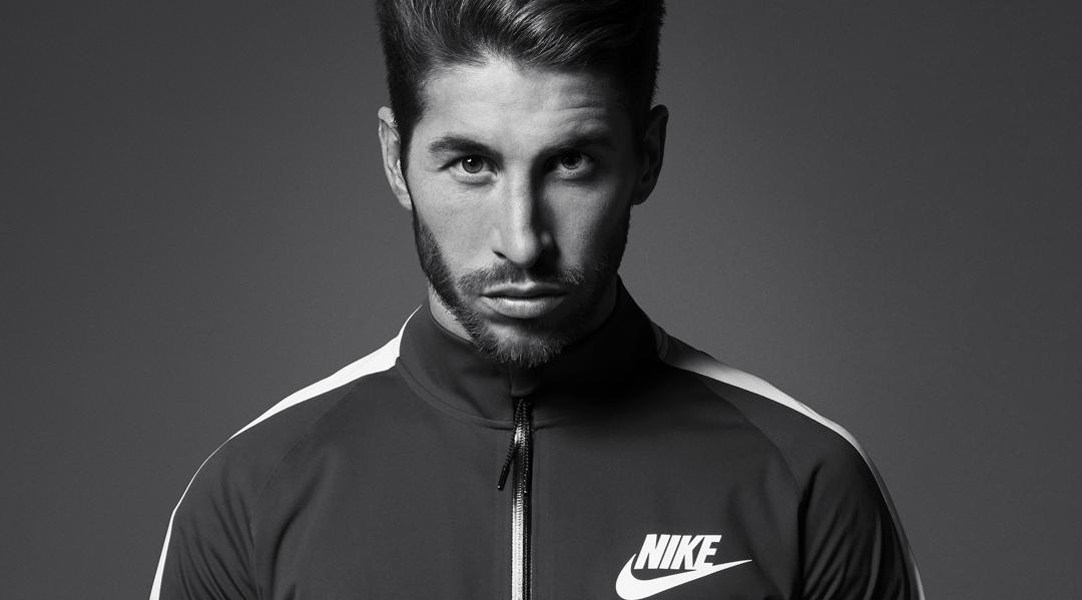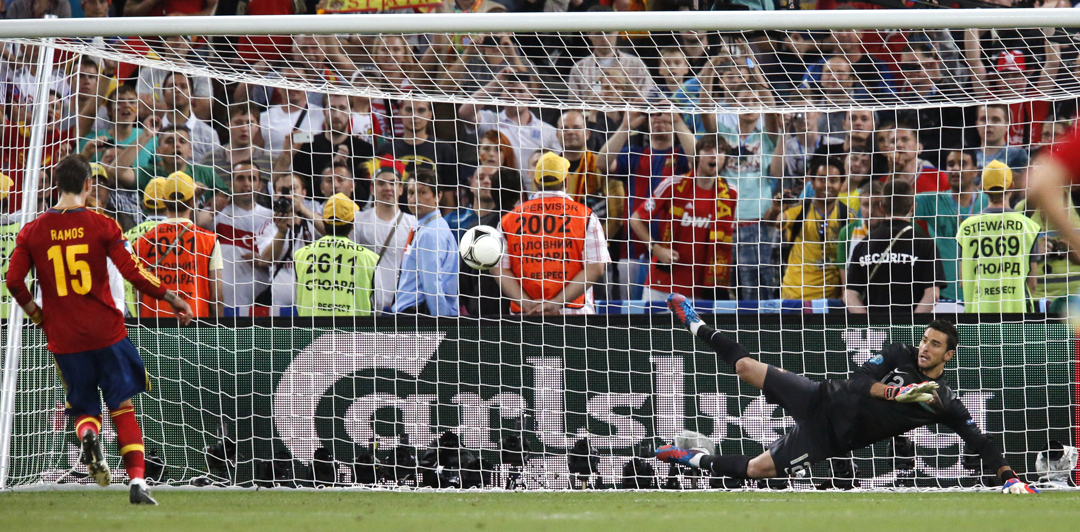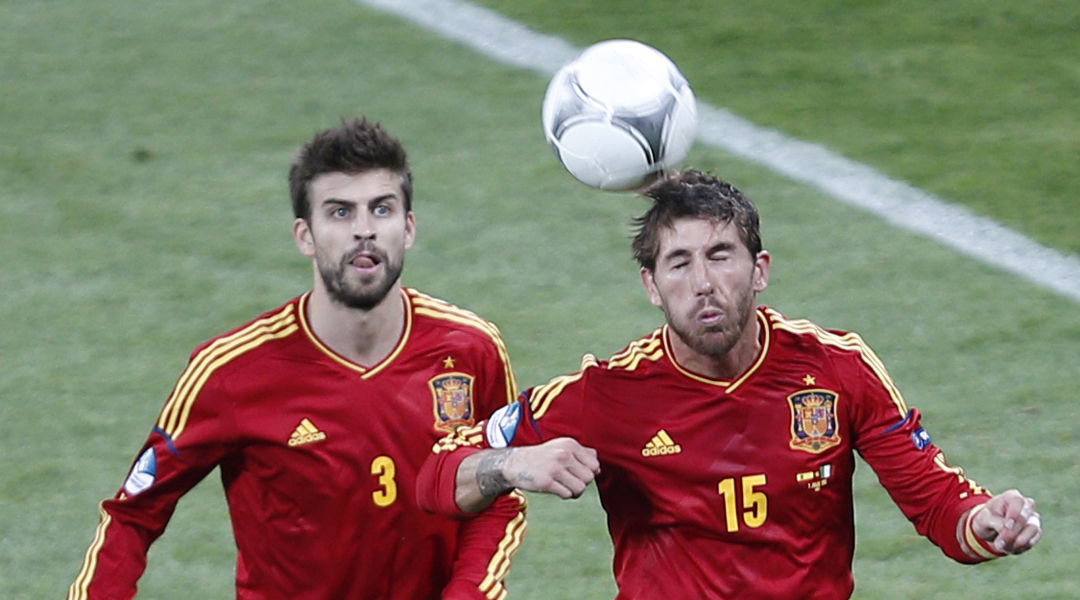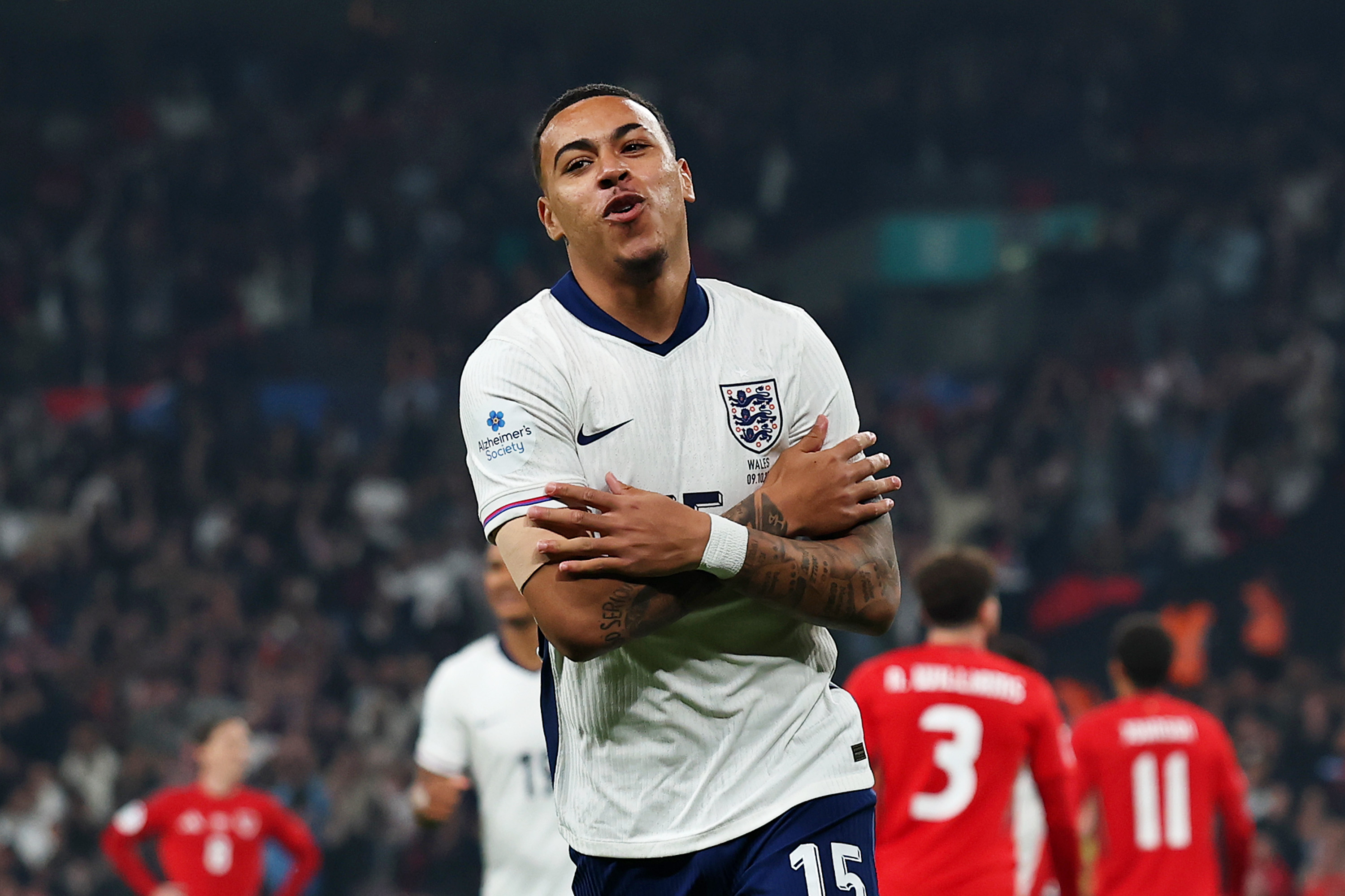Sergio Ramos: Q&A
FFT talks to Real Madrid and Spain's Sergio Ramos about bullfighting, in-fighting and elbowing his brother...

The best features, fun and footballing quizzes, straight to your inbox every week.
You are now subscribed
Your newsletter sign-up was successful
Want to add more newsletters?

Five times a week
FourFourTwo Daily
Fantastic football content straight to your inbox! From the latest transfer news, quizzes, videos, features and interviews with the biggest names in the game, plus lots more.

Once a week
...And it’s LIVE!
Sign up to our FREE live football newsletter, tracking all of the biggest games available to watch on the device of your choice. Never miss a kick-off!
Join the club
Get full access to premium articles, exclusive features and a growing list of member rewards.
Who is Sergio Ramos? An Andalusian bullfighter?
Well, perhaps I'm not the best person to define myself. Bullfighting is a profession that I considered, but football makes me even happier.
I feel a bond with that world because my family and my town have always been great bullfighting fans. It's something you're born with; although when you're out on the pitch you obviously forget about everything, I do feel I have some "matador" qualities.
April 2012: Your shootout penalty miss means Bayern beat Real Madrid in the Champions League semi-final. June 2012: Spain's Euro 2012 semi-final goes to penalties, and you immediately say “Gaffer, I'm going to take one”. Did that take bravery?
When certain moments arrive, there are players who fortunately have that complete confidence in themselves, who are in a rich vein of form and want to face up to such responsibility. Throughout my career I've always been able to take in the situation and assume that responsibility – sometimes with more luck than others, but in that sense... Yeah, I took the decision to ask the gaffer to take it and I'd do it again a thousand times over.
The best features, fun and footballing quizzes, straight to your inbox every week.
Fair enough, but what made you go for a 'Panenka' chip?
Believe it or not, it was completely premeditated and well-planned from the day that I unfortunately missed the penalty against [Bayern's Manuel] Neuer – for everything that was said [the two players had a Twitter bicker about it], all the repercussions. In that sense, that penalty was more for my family than for anything that affected me, which is obviously a disappointment given that the Champions League Final was only a whisker away. You always remember the pain and the negativity after something like that. It was more in honour of my mother and my sister, who are the two that always suffer most: they deserved an eternal moment to cherish from my career, and I think that was one.
Who knew about the Panenka plan?
Jesus Navas, who is practically always with me in the room; Raúl Albiol, who I told just as the shootout started; and my dad and brother, who know me well. I had already told them on the night of the Bayern game that the next time I had to take a penalty, I was going to take one like that.

Did you tell Vicente del Bosque?
Yeah. We practised penalties carefully because there are always cameras and you never know if an opponent is spying on you: you can always give them clues. We practised just before the Portugal game and I said to him: “Gaffer, if I take a penalty, should I chip it?” He laughed and said that when the moment arrived I'd bottle it. And I said: “Well, if the chance comes round to take a penalty and I'm the first...” And that's exactly what happened. To be honest it's one of the moments that has lived with me since.
Do you study your opponents, in this case goalkeepers?
As time goes by, and you play against different goalkeepers you gradually get to know how they're going to react, if they're going to wait for you, if they dive early. I more or less knew that [Portugal's] Rui Patricio likes to choose a side slightly before you take the spot-kick – meaning that whatever he chose, I was still going to chip it. In the [2013] Confederations Cup semi-final against [Italy's Gigi] Buffon, I knew a goalkeeper with so much experience was going to wait for me, so I had to change and wait until his last movement before deciding where to put it [successfully in the bottom corner]. That said, I do like to study the opponents I'm going to face.
Do you think that the world is for the brave?
That's what they say. I've never had a problem in that sense. I believe that you learn the most during the bad times and that mistakes make you stronger.
You're still only 27, but you've been a player and a leader for many years – and 115 caps for Spain. Do you see yourself as the future captain of your country?
I believe that everybody is their own person, and in that sense I think that leaders are born and over time you mould yourself. Experience gives you that, as do games and your team-mates... That's why it's not for me to say. I think that it should be the opinion of your team-mates or the people that really know you, but in that sense I do consider myself a footballer who has learnt a lot over time. I'm fortunate enough to have played many years at the top level, both for my team and for Spain, which is something that I'm enormously proud of. Hopefully, in the future my name will last long in the history of the beautiful game.
Hopefully, in the future my name will last long in the history of the beautiful game"
It's a beautiful game, but you've also got a touch of rebelliousness about you. So you're a rebel with a desire to do well and a bit of attitude, right?
You can call it that as well. I've always been clear about what I want to do, what I want, what I like and what I don't. And it's obvious that you're not going to get on with everybody, but those who know me know what I'm like. They know that I always speak my mind and, whether you like it or not, I'll tell you what I think.
Speaking of which, when there were problems between Barcelona and Real Madrid players in the Spain camp, you were one of the reasons that this came to light and that the mini-crisis was resolved...
All of us did our bit. I never had a personal problem with Piqué and I don't think I ever will: having spent more time with him, he's a great lad with a good heart, as is the group we create in the national team... In general we're all the same, we fight for the same cause and it would have been an error to ruin the atmosphere of such a great and promising national team. The results and the successes highlight that.
If there was that difference, perhaps, it's because of what Barcelona and Real Madrid were playing for in one season. There were a lot of games: Champions League, La Liga, Copa del Rey... there was a bit of tension, a bit excessive at times, but at the end of the day we found a solution and moved on.

How do you think your team-mates and opponents see you?
I hear so many things that I don't know, but... An honourable, hard-working guy who fights for what he wants and defends what he believes is his. Those who know me can add the rest. But above all I consider myself to be a good person, which in my eyes is what is above all else.
Ashley Cole was asked recently what he thought others – not team-mates, strangers – thought about him; he replied that some think he's not so hungry now because he's been playing for years. How do you think fans outside Real Madrid and La Roja see you?
I feel loved wherever I go and it's something that I'll be eternally grateful for. That affection from the fans, from people, whether they're from your club or not... They value you as a professional in the world that you work in. Luckily in my case, football is known on a global scale, and I sense that affection outside of Spain, when I'm playing abroad or on holiday. For all the years that I've played for Madrid, I still get up with the same desire I had on the first day, when I joined the team at 19 years old. I think that's what makes you different from the rest: being optimistic and not being satisfied with what you have achieved, demonstrating why in this world you cannot live in the past.
For all the years that I've played for Madrid, I still get up with the same desire I had on the first day, when I joined the team at 19 years old"
Despite the rebelliousness, you have good manners and values. Is it important that children see you as a role model?
That makes me really happy. From an early age I've had role models like Carles Puyol, Fernando Hierro, Paolo Maldini – the players who marked an era. In my case, Javi Navarro, Pablo Alfaro, “Tiburón” [Shark] Prieto, who were from my part of the world... I'm glad if I'm a role model. I believe that I've fought and sacrificed myself greatly, so that when I retire I can do so with my conscience clear, after having won everything there is to win in this sport. In this regard, those children can always count on me for the things I can help them with.
Tell us about the Sergio Ramos away from football...
A family man, romantic perhaps. I consider myself to be the most romantic of my brothers. We've always found it difficult to express it to the outside world, and the family; I think they know it, but above all I think it's the most important thing, along with happiness, which has to come above all else.
It's not always sweetness and light with your brothers though… tell us about playing against your brother for Sevilla when you were a kid…
When I was 15 and my brother René was 23 or so, I was in Sevilla's junior ranks and he played for a local team. We played a friendly at their home ground; everyone from the town was there and they'd get stuck into us. And we came up against each other: he was the centre-forward and I was the centre-back. There was the typical banter between brothers. Their goalkeeper was about to take a goal-kick and he starts grabbing me… I say to him, “Careful, today is serious and we're playing a match...” He was looking to have a laugh but I wasn't interested in getting involved. So the goalkeeper takes the goal-kick and I go up for the ball with my elbows out and accidentally catch him on the lip. The ref didn't blow for a foul even though I made him bleed a little. Ten minutes later, their coach saw that I was getting the better of him and took him off: "Aren't you embarrassed that your 15 year-old brother is beating you to everything?" He's lived off that story ever since!
Gary Parkinson is a freelance writer, editor, trainer, muso, singer, actor and coach. He spent 14 years at FourFourTwo as the Global Digital Editor and continues to regularly contribute to the magazine and website, including major features on Euro 96, Subbuteo, Robert Maxwell and the inside story of Liverpool's 1990 title win. He is also a Bolton Wanderers fan.
 Join The Club
Join The Club










